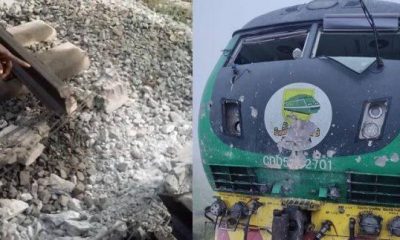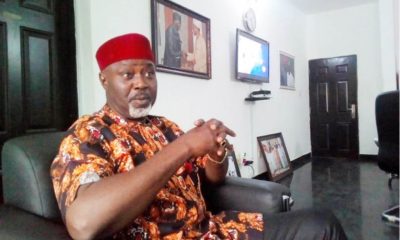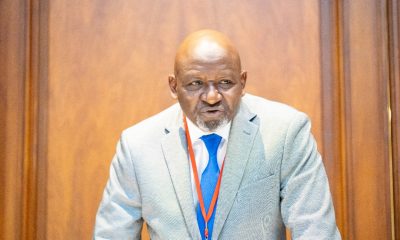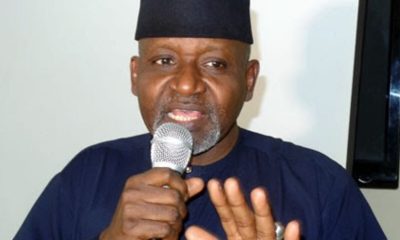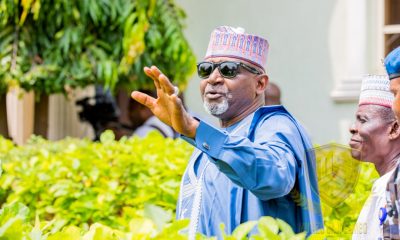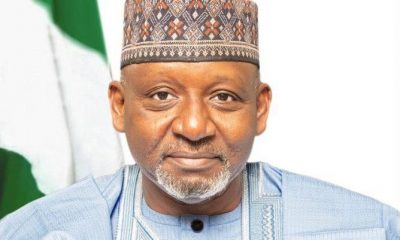Maritime Agencies
INLAND WATERWAYS OF DEATH: WHO IS TO BLAME?
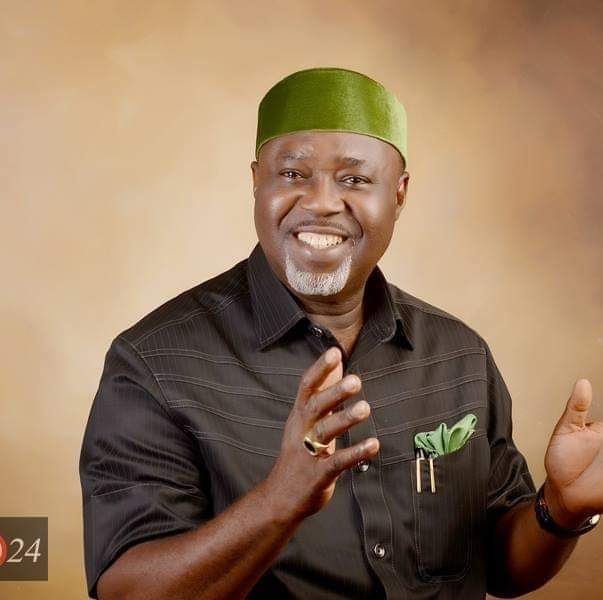
The matter is grim! Every patriot is deeply worried. Whether in Lagos, Yauri, Sokoto, Shiroro, Kebbi or the Niger Delta waters, the increasing loss of lives on the nation’s inland waterways is frightening and can no longer be tolerated. Who actually stands to blame? Who is contributing what to perpetrate what ought to be an exception rather than the rule? Is the carnage persisting because waterway users stubbornly neglect safety measures the National Inland Waterways Authority (NIWA) has been championing for years? What is the level of government empowerment to NIWA to address this matter? Is government allocation sufficient to frontally address such a gargantuan problem? IZUCHUKWU OZOEMENA examines the issue following fresh appeals by the inland waterways regulator recently for all hands to be on deck to check what is becoming a national embarrassment.
August 12 – 14, 2014, the National Inand Waterways Auhority (NIWA) hosted her first-ever International Conference and Exhibition (ICE) in Lagos. Tagged NIWA ICE, it was part of continuing efforts to draw global attention to Nigeria’s huge waterway potentials and efforts the agency was making to harness them not only for the benefit of inland waterway users in-country but stakeholders from contiguous nations and even beyond.
From all indications, the theme of the conference, “Modernizing Inland Waterways Infrastructure and Vessels for Safe and Sustainable Inland Waterways Transportation”remains as relevant and apt, eight years after. This is because it falls in line with the imperatives of the moment and present concerns about increasing safety lapses on the waterways and loss of lives being experienced.
The NIWA ICE focused on safety while vigorously projecting the agency’s strategies to compel boat operators and passengers alike to give topmost priority to safe sail on the inland waterways.
FROM THE BEGINNING
Among other responsibilities, the NIWA Act CAP N47, 2004 of January 1, 1996 which established the agency, vested in it the task to “provide regulations for inland waterway navigation.” Unambiguously spelt out in this task is safety on the inland waterways. To what extent has the agency gone to satisfy public expectations in this regard? What role is stakeholders’ attitude of non-compliance to safety rules playing in making it impossible for NIWA to make substantial strides in ensuring safety on the inland waterways? Does NIWA really stand to blame for continuing loss of lives on the waterways when boat passengers, boat drivers and others blatantly flout safety regulations while plying the inland waters?
The present leadership of NIWA under Dr George Moghalu has been facing scathing criticism for what appears an inability to tame the scourge of numerous boat mishaps. This is despite all efforts by the agency to enforce extant safety regulatory measures. However, some stakeholders say that considering the very wide area whose inland waterways it is overseeing, the agency deserves to be adequately empowered to tackle all tasks including incidences of disobedience to safety rules and regulations. For now, the agency lacks what it takes to adequately prevent or preempt some of these deadly occurrences. It can only react to some of them depending on her capability level which reflects the level of empowerment at her disposal.
Shortly after appointment as NIWA Managing Director, Dr George Moghalu undertook a familiarization tour to coastal states and communities to re-assure all and sundry that contrary to negative notions about travelling by water, it remains the fastest, safest and economically-rewarding means of transportation.
At an enlarged media interaction in Lagos early August, Moghalu was at his best when he made efforts to assure stakeholders that much as it may be humanly impossible to achieve absolute perfection, the agency remains committed to ensure an enduring, secure and safer inland waterways. On recurring boat accidents, he commended the media for reporting this at least to increase awareness on the possibility so that operators can caution themselves on the need to comply to safety regulations at all times. However, he blamed a section of the media for not verifying facts before publishing news on the frequency and casualties. He condemned some boat operators and passengers who treat safety matters with levity.
CHALLENGES
Without doubt, the greatest challenge NIWA is yet to overcome is deviant acts that result to avoidable marine accidents. Majority of accidents occur at night. The agency has to devise a far-reaching monitoring and enforcement strategy, night or day, to remain ahead of boat operators who ply the waterways at unholy hours. Strict enforcement of safety precautions, though already in place, is yet to meet expected standards. This is the reason boat accidents still persist even to a frightening proportion being experienced presently.
Jide Okunola, an Apapa-based freight forwarder stated this recently. Okunola who resides in Igbede riverine area of Ojo, told Falcon Watch that most boat drivers who operate along the Badagry-Ojo-Liverpool-Apapa corridor always have a field day because Police patrols take place during the day only. Therefore, he suggested that NIWA must redesign her strategy by engaging local ‘agboros’ and those he described as ‘repented hoodlums’ because “it takes a thief to catch a thief”. According to him, they are already familiar with the terrain and can be very useful in monitoring who is doing what on the waterways especially at night.
These people can be offered incentives to volunteer information because they are on ground more than the Police. Night journeys are common. Nobody checks what happens along the waterways at night”, Okunola regreted. He said that along the stretch, intensive fishing happens in the night; movement of smugglers also take place at night and nobody is available to question those involved. People involved in this act care less about light, wrecks and other obstructions that can cause mishap. Of course, they understand the local geography and can avoid obstacles even in the dark.”
He advised NIWA to realize the need to obtain valid information about what goes on along this stretch through devising a subtle means to identify and befriend some of these night operators so as to have access to needed intelligence on unauthorized night voyages. If this strategy works out on this corridor, he explained, it can be replicated in other areas.
Okunola regretted that all talks about life jackets means nothing to the locals. “In fact, as they rush out to fish at night or scoop sand during the day, life jackets do not matter. For smugglers, the motive is to make it quick. Nothing else is relevant.”
Falcon Watch recalls that at an enlarged stakeholders’ meeting in 2020, Dr Moghalu stated that his cardinal objective was to make water transportation a transport mode of choice. He reiterated this in Lagos recently. “We have tried to provide the needed environment for operators, including training programmes, to expose them to operational standards. Yet, some have chosen the path of desperation and dangerous behavior leading to loss of lives and property.”
MENACE OF WATER HYACINTH
The menace which water hyacinth, the stubborn weed constitutes on the waterways is enormous. This directly impedes navigation for all kinds of vessels. In areas where she has supervisory statutory responsibility, NIWA clears this stubborn weed, Moghalu says.
Following the seasonal embarrassment this weed causes to navigation, NIWA and Lagos State Waterways Authority, LASWA, in 2017, concluded plans to promptly clear it at all times.
At a 2017 joint stakeholders’ meeting with members of the Association of Tourists, Boats and Water Transportation of Nigeria (ATBOWATON) in Lagos, then NIWA Lagos Area Manager, Engr Muazu Sambo admitted that water hyacinth was a critical problem hindering the Agency’s operations. Muazu Sambo who is the current Transportation Minister disclosed that NIWA had acquired equipments to clear it on a permanent basis. “We have acquired equipments to clear water hyacinth; we will deploy them for the purpose,” Sambo said.
INTERVIEW WITH DR GEORGE MOGHALU (in-box)
Q: Frequent boat accidents have become NIWA’s greatest challenge. Does it mean your safety arrangements are not working?
A: We’re doing all what we are expected to do to manage the waterways. But it is sad enough that you find that either by acts of commission or omission, people do not do what they are expected to do. For example, we have placed protocols that vessels don’t move in the night; they don’t move in the early hours of the day. From statistics and reports we receive on accidents that happen, 90% of such accidents happen in the night or early in the morning. What that goes to show is that these vessels don’t have navigational aids. Therefore, they should not move in the night or when it is dark. But people still move in the night. They will avoid the right jetties. At times, they don’t even move from jetties at all; they don’t move at river banks. They move from their vessels, get into the water and expose people to danger. You can’t just leave any of our jetties on your own without being tracked. These jetties are monitored and there are rules that must be obeyed. You cant just get onboard any of our jetties without being fully kitted among which is wearing the right life jacket. Most people don’t even know that these jackets expire. You can’t have an expired life jacket from any of our jetties. You can’t ply from any of our jetties when you are not properly kitted. But to avoid all these, they take people and put them on vessels and expose them to unnecessary and avoidable danger when they are not properly kitted.
Q: People say this is happening because NIWA has not been stringent in punishing offenders by catching and prosecuting them…….
We’re getting them….. We arrested people and tried them. Some people have been convicted. We are still doing that. Even we impound substandard vessels that shouldn’t be on the waterways. We get such vessels; some are destroyed. We keep doing that because every lfe is important to us. We don’t want the waste to continue.
Q: NIWA’s ex-top Manager, Engr Muazu Sambo, is now the Transportation Minister. Do you expect an improved treatment of NIWA matters especially strict enforcement of safety regulations which he championed in the past?
We are always serious and concerned about enforcement of safety standards. We are doing verything to push and actualize them. But don’t forget that much as he was our former staff, he is now the Federal Minister of Transportation and other paratatals are under him. It is not only NIWA that he is overseeing.
Q: The Onitsha River Port was recently concessioned. What is the position of this very large parcel of land and vegetation in the channel directly overlooking the port?
It’s an island; it’s not a bush. We have one or two Chinesecompanies discussing with us on the possibility of developing it.
Q: Still on safety and standards and the need to curb recurring boat mishaps. Any plans on waterway transport codes and standards?
We are putting up transport codes and standards; setting up a task force. Any defaulter we catch we hand over to the Police to prosecute. We are not leaving anything to chance because this is embarrassing. Every life is important to us. The rules area made to be obeyed.
Q: What is the place of technology in all these?
Like you heard me say, boat registration is now done online. We are trying to use technology as much as we can. The next stage is to station cameras to be able to monitor activities on our waterways. So, technology has a key role in all we do.
Q: You brought out some patrol vehicles as well as instituting a task force. What are you doin g to ensure that rules are not only adhered to but operators are abreast of the law?
We are engaging operators. We have created fora where we meet and discuss. A lot of sensitization is going on across the country. Like you said, we bought and distributed patrol vessels .We are empowering and giving all the support to our Police department. We are also setting up task forces that are working across the country to effect protocol when it has to do with boat management.
Q: It appears managing the long stretch of inland waterways across Nigeria is a daunting task for NIWA. Do you support views that it is time the agency is unbundled into three or four zones for easy surveillance and monitoring?
Why unbundle it? We already have too many agencies. We have departments in NIWA that are living up to their responsibilities and expectations in this regard. So, I don’t see why NIWA should be unbundled. I don’t think it is necessary.
Maritime Agencies
MARAN Hosts Discussion on Nigeria-China Currency Swap Deal: Opportunities, Challenges
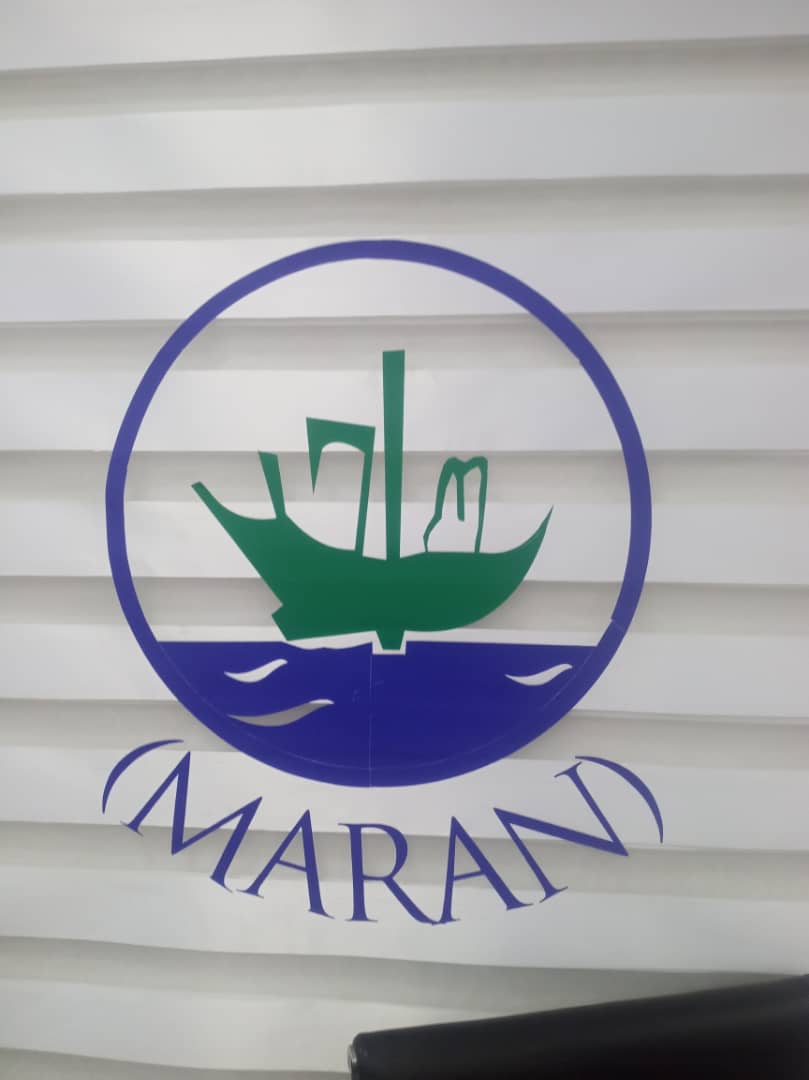
By Izuchukwu Ozoemena
Come April 15, 2025, the Maritime Reporters’ Association of Nigeria (MARAN) will play host to a top- flight event with the theme “Navigating the Nigeria-Peoples Republic Of China Currency Swap: Opportunities and Challenges for Import, Export and Maritime Business”.
The landmark event which takes place a the Rockview Hotel, Apapa GRA, Lagos, will bring together critical stakeholders in the import and export business, policy-makers, and government agencies to examine the Nigeria-China Currency Swap deal and the implications on Nigeria’s maritime industry.
The currency swap agreement, worth 15 billion Yuan ($2 billion), enables the direct exchange of the Chinese Yuan and the Nigerian naira, bypassing the US dollar.
This groundbreaking deal, according to Godfrey Bivbere, President of MARAN, is expected to foster stronger bilateral trade, between Nigeria and China by reducing transaction costs and boosting economic cooperation.
The MARAN President emphasized that in line with her role agenda-setting role, the association recognizes the importance of interrogating the policy further considering the debilitating effect of the American dollar on importation and China’s significant role as Nigeria’s biggest import partner.
Participants expected at the event include the Central Bank of Nigeria (CBN), the Nigeria-China Strategic Partnership (NCSP) and the Chinese Embassy in Nigeria.
Others are the Ministry of Finance, importers, exporters, maritime operators, policy-makers, economists, financial institutions, and trade organizations.
The event aims to provide an enhanced understanding of the Nigeria-Peoples Republic Of China currency swap and its impact on stakeholders in import, export, and maritime businesses.
The meeting will also identify potential risks and opportunities arising from China’s growing economic influence in Nigeria and provide actionable recommendations for stakeholders to navigate changes in the trade and maritime landscape.
Maritime Agencies
Zoe Maritime Breakfast Meeting: NCDMB, NIWA, LASWA Discuss Maritime Logistics, Sustainability of Ocean Economy.
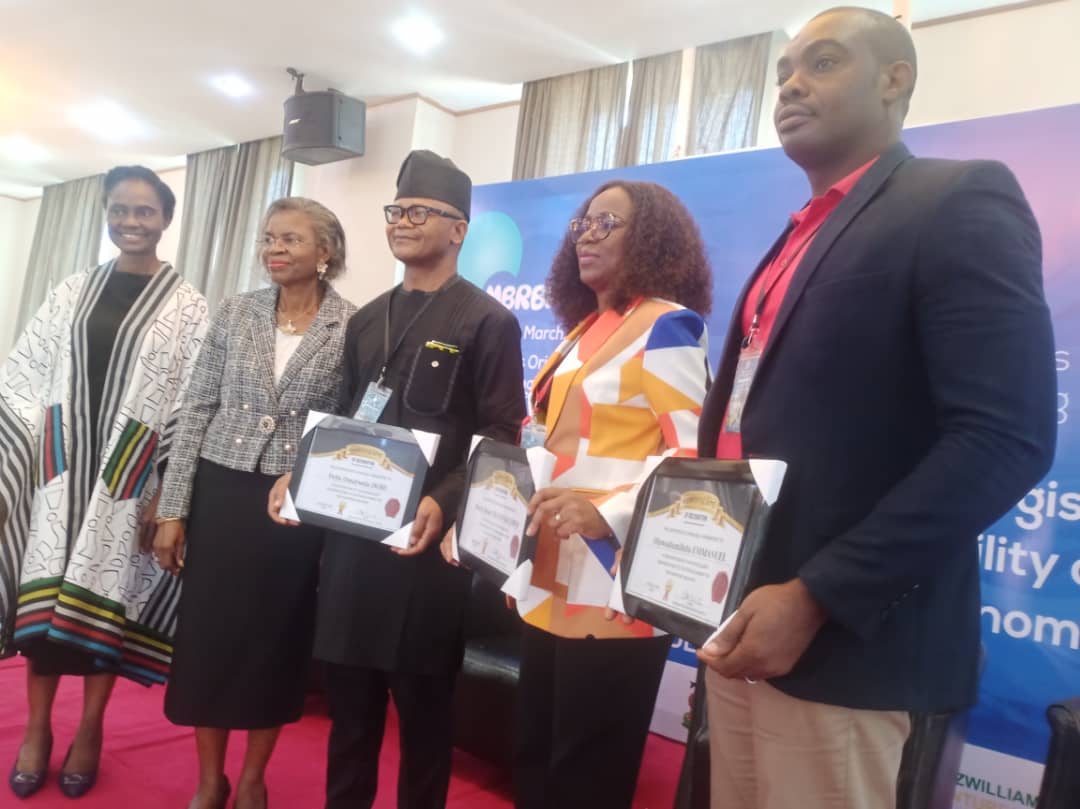
By Izuchukwu Ozoemena
In furtherance of a mandate to champion local human resources input into operations in Nigeria’s oil and gas sectors, the Nigerian Content Development and Monitoring Board (NCDMB) has instituted the Nigerian Content Forum
However, the agency’s intervention in the maritime space has been challenging as she struggles with in-country value addition and pushback in efforts to make progress.
NCDMB Executive Secretary/CEO, Mr Felix Omatsola Ogbe stated this in Lagos, Thursday, during a panel discussion at the 2025 edition of the Maritime Business Roundtable Breakfast Meeting organized by Zoe Maritime Resources Ltd with the theme ‘Maritime Logistics and Sustainability of the Ocean Economy’. Other dignitaries on the discussion included Oluwadamilola Emmanuel, General Manager, Lagos Waterways Authority (LASWA), Engr Elsie Egwuatu, Head of Marine, Lagos Area Office of the National Inland Waterways Authority (NIWA) and Ruth Ikem Chukwukezirim, CEO, Global Energy & Logistics.
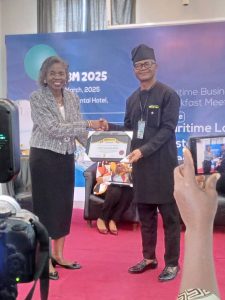
Mr Ajimijaye receiving a souvenir on behalf of NCDMB Executive Secretary/CEO.
Speaking through Silas Omomehin Ajimijaye, General Manager, Research, Statistics and Development, the NCDMB boss referred to the $350 million intervention fund up for grabs by local shipping companies. Not less than 10 Nigerian companies, he explained, have accessed the facility.
“As a matter of fact, before I came here, I was speaking with one of those companies that have benefitted from our intervention. A good example is Starzs Group. They said they are very happy with what NCDMB has done to help them as a as a company. I know the MD, Iro Ogbeifun, a lady who is doing so fantastically well. That is one of those cases we talk about women empowerment. The company is doing well. Not only them, there are several others we are working with to deepen in-country value addition in the maritime sector.”
The fund which keeps growing is disbursed as a single digit loan businesses use and pay back. “This fund is being managed by the Bank of Industry (BOI). Every now and then, they provide a report to show how it is going.”
On collaboration with other agencies, Mr Ajimijaye said part of NCDMB’s mandate is to collaborate with NIMASA to deepen local content through the Nigerian Content plan which should be enshrined into every contract arrangement.
“You have to state what Nigerian Content plan you have now and what you plan to do. Even with manning vessels, you have to show what you have currently and how you want Nigerians to understudy foreigners and possibly integrate them into the system.”
“There is what we call the baseline census for the marine services sector. What this means is that for the companies which are into marine services in the oil and gas sector, we want to do a census, a survey. What is the capacity, the capabilities? How many vessels do they have? Who are the Nigerians there? Who are the foreigners there? What are they doing and what are their challenges? When we analyse the data, we do what we call a gap analysis and have a clear data-driven scenario and recommend to government ways to bridge gaps.”
“We also recognize our partners – NIMASA, NIWA, various other institutions and industry players to collaborate to solve the problems.”
For instance, he explained, what NCDMB calls the Nigerian Content intervention fund is based on a study carried out to realize that people have financial challenges.”
The fund is given to a development bank to help NCDMB administer instead of leaving the money in the Central Bank.
On reducing joblessness among trained seafarers, the NCDMB boss explained that his agency’s intervention is a continuous process.
“For some of them, we do the training and try to source seatime places for them. It is a very big challenge to engage them on vessels for seatime experience. They have the training, certification and exposure. It’s been very fantastic but the problem is the size of the industry. Right now, you can’t take everybody. Entering the programme has always been very competitive. For those who have participated, you can rarely find anyone who has gone through that internship training roaming the streets. It’s only those who have not had the opportunity to have the exposure. The cadet internship training programme is a continuous process. Apart from cadets, we have training for marine surveyors. We give them scholarship. Thereafter, they’re expected to launch out into the world.”
NCDMB recommends that after training, the cadets are not expected to wait for the agency to engage them because it does not have the jobs.
“We are not a maritime company. We’re just to build and launch you to find work anywhere in the world.”
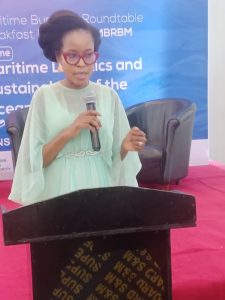
Engr Elsie Egwuatu, Head of Marine, NIWA, Lagos Office.
In a presentation, the National Inland Waterways Authority (NIWA), the statutory regulator of the inland waterways, outlined her critical role in promoting maritime logistics and the sustainability of the ocean economy by making operations on inland waterways safe and seamless. Represented by Engr Elsie Egwuatu, Head of Marine, NIWA, Lagos Office, the
agency dwelt on critical areas of concern currently including maritime accidents and safety, delays, disruptions and navigational challenges which are being tackled headlong with huge assistance from the Minister of Marine and Blue Economy, HE Adegboyega Oyetola.
NIWA, she stated, has also ensured the development of indigenous technical and managerial skills to meet the challenges of modern inland waterways transportation.
In her welcome address earlier, the Chair, Zoe Maritime Resources Ltd, Barr (Mrs) Oritsematosan Edodo-Emore said that as a coastal nation, it is important for Nigeria to harness ocean resources and develop her economy in a manner that sustains her teeming population while eradicating poverty in the land. Maritime logistics, she observed, is an acute driver of the ocean economy.
“In this digital age, it is important to evaluate how logistics is affecting the development of the ocean economy. What are our obligations in maritime logistics? What are the opportunities and how can these be harnessed to uplift the Nigerian populace and, by extension, develop the African continent?”
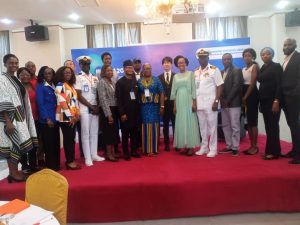
Other participants in the panel discussion included the representative of Oluwadamilola Emmanuel, General Manager, Lagos Waterways Authority (LASWA), the Nigerian Navy and Mrs Ruth Ikem Chukwukezirim, CEO, Global Energy and Logistics.
Maritime Agencies
‘OPERATION WHIRLWIND’: Customs Renews Commitment to Tackling Smuggling, Hauls Largest PMS Seizure in Kebbi.
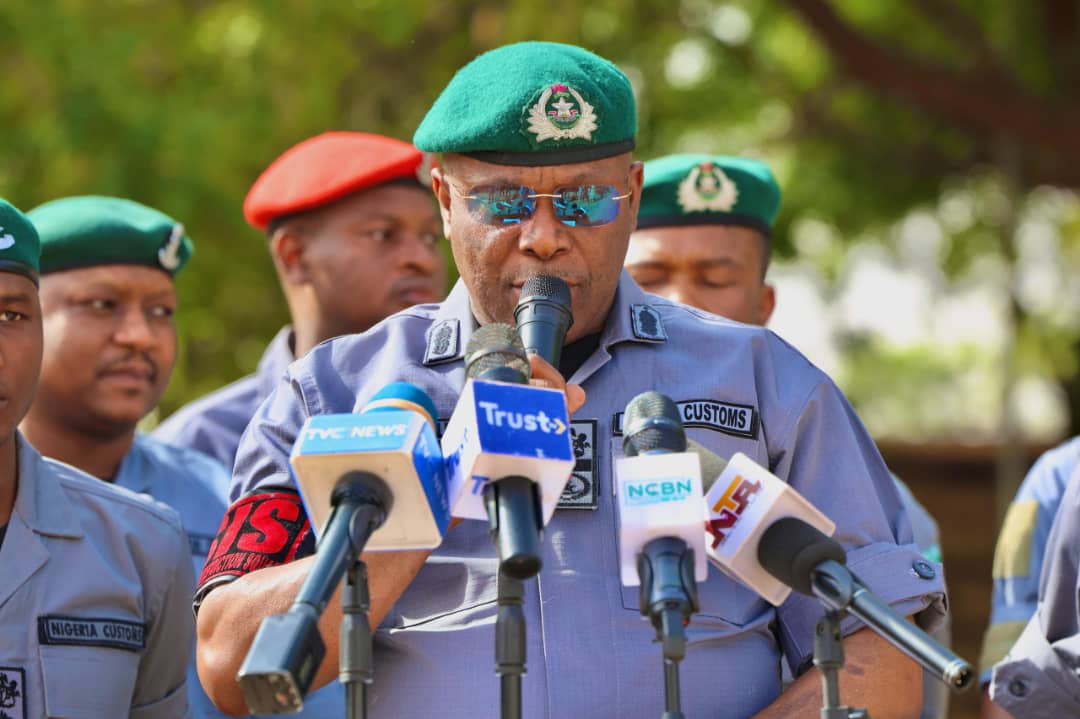
By Izuchukwu Ozoemena
Assistant Comptroller-General of Customs (ACG) Hussein Ejibunu, National Coordinator, ‘Operation Whirlwind’, a special task force of the Nigeria Customs Service on overcoming the menace of petroleum products smuggling, Tuesday, showcased what he described as the largest single seizure of smuggled Premium Motor Spirit (PMS) in Kebbi State since the operation was berthed.
Speaking at Birnin Kebbi, Kebbi State capital, Ejibunu who is also in charge of Financial Administration and Special Duties at the Customs Headquarters said the smuggling of PMS poses a serious threat to the Nigerian economy as it leads to revenue losses, distortion of trade statistics, artificial scarcity, and threats to national security.
The massive seizure, he announced, marks a significant milestone in the efforts of the Nigeria Customs Service (NCS) to protect Nigeria’s critical resources.
“The Nigeria Customs Service remains resolute in tackling smuggling activities that undermine government policies and economic stability,” ACG Ejibunu stated.
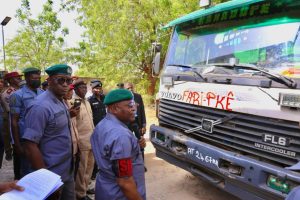
Items seized include 766 jerrycans of 25 litres each and 18 drums of 200 litres each of PMS conveyed in a Truck Plate number DC 7184 RB (Nigeria Plate Number) and 1,454 25-litre jerrycans and 18 200-litre drums of PMS loaded in a Truck number AT 2457 RUP (Republic of Benin plate.
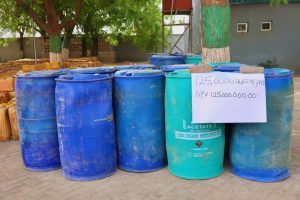
According to him, Truck number BV C240 Arubi—Republic of Benin plate number carrying 1,350 jerrycans, each 25 litres, and 18 drums, each 200 litres of PMS was also confiscated.
Additionally, 805 kegs of 25 litres of PMS seized at various flashpoints in the zone including Dole Kaina, Zaria Kalakala, Tunga Waterside, Lolo, and Tsamiya were also displayed.
The interception, which resulted from credible intelligence, occurred in the Tsamiya area of Kebbi State following days of painstaking surveillance.
Ejibunu who restated the determination of the NCS to sustain the fight against fuel smuggling said the Service is ever prepared to strengthen inter-agency collaboration so as to secure Nigeria’s borders.
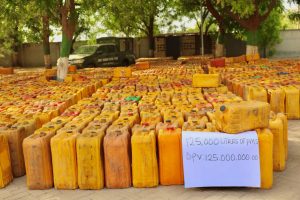
Kegs of confiscated PMS.
The seized PMS was sold at a controlled price of N10,000 per 25-litre jerrican to ensure that citizens rather than the smugglers themselves benefit.
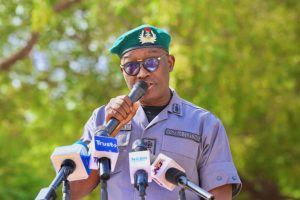
Chidi Nwokorie, CAC, Kebbi Command.
Addressing the press, Comptroller Chidi Nwokorie, the Customs Area Controller (CAC), Kebbi Command, reiterated his commitment to combat smuggling and other illicit trade activities in Kebbi State. He assured stakeholders of the Command’s determination to enforce trade regulations.
“We remain committed to facilitating trade and ensuring a seamless business environment for legitimate traders. For smugglers, our operations will only intensify to bring smuggling to its lowest possible level,” he pledged.
While recognizing how effective intelligence-driven operations can be, CAC Nwokorie commended the efforts of Customs officers in executing successful enforcement operations.
He also acknowledged the collaboration with sister agencies, highlighting their critical role in ongoing anti-smuggling initiatives.
“This success is a testament to the dedication and synergy between Customs and other security agencies. We will continue to work together to protect the nation’s economy,” Nwokorie added.
On his way back from Kebbi, ACG Ejibunu visited the Sokoto Customs Area Command, where he met with the Customs Area Controller, Sokoto-Zamfara Command, Comptroller Umar Abdulkadir and officers and men of the Service.
He used the opportunity to reaffirm the commitment of the Service to border security and the fight against smuggling.
-
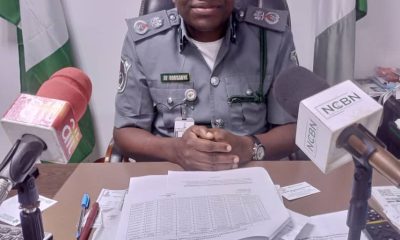
 Maritime Agencies2 weeks ago
Maritime Agencies2 weeks agoLilypond Export Command Is Meeting Expectations, Handles 70% of Nigeria’s Total Tonnage of Export Cargo, says CAC Odusanya.
-

 Personality Interviews3 weeks ago
Personality Interviews3 weeks agoTRADE FACILITATION: FULFIL CUSTOMS REQUIREMENTS, ENJOY AEO, B’ODOGWU, says Ayokunle.
-
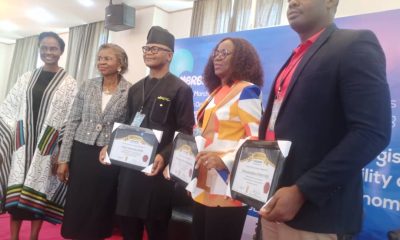
 Maritime Agencies4 days ago
Maritime Agencies4 days agoZoe Maritime Breakfast Meeting: NCDMB, NIWA, LASWA Discuss Maritime Logistics, Sustainability of Ocean Economy.
-
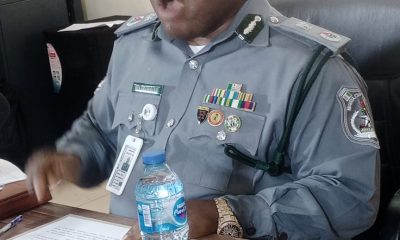
 Maritime Agencies3 weeks ago
Maritime Agencies3 weeks agoSEME CUSTOMS: Dr Oramalugo Dares Smugglers, Seizes N267m Illicit Drugs, PMS, Rice In A Month
-

 Maritime Agencies1 week ago
Maritime Agencies1 week agoANTI-SMUGGLING: Kebbi Customs Generates N13.3M In A Month, Confiscates Contrabands Worth N84.2 M.
-
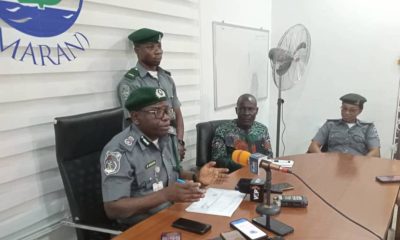
 Maritime Agencies3 weeks ago
Maritime Agencies3 weeks agoCustoms Export Command Seeks Seamless Movement To Ports To Evacuate Export Containers
-
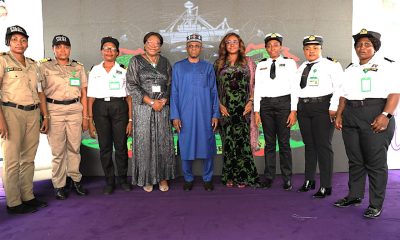
 Maritime Agencies3 weeks ago
Maritime Agencies3 weeks agoINTERNATIONAL WOMEN’S DAY, 2025: NPA Pledges Equal Rights For Women In the Workplace.
-

 Maritime Agencies1 week ago
Maritime Agencies1 week agoPorts Commissioner of Police Commends Bivbere-led MARAN for Responsible Reportage of Maritime Sector


